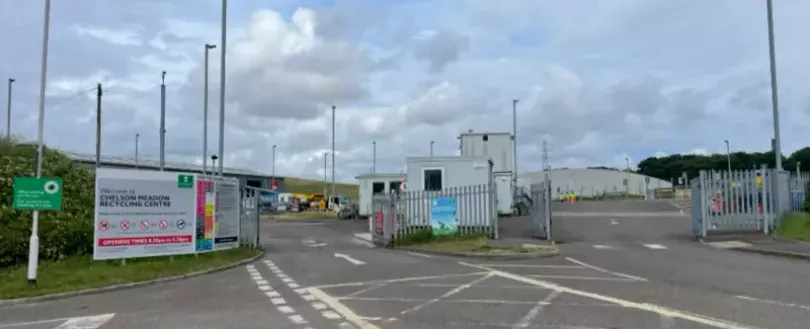
New Fire Prevention System Planned for Plymouth Waste Site
Like it? Share it!
11 June 2025
A new fire prevention and suppression system is being proposed for Plymouth’s largest recycling and waste facility at Chelson Meadow.
Biffa Waste Services, which operates the site on behalf of Plymouth City Council, has submitted a planning application outlining its intent to install an advanced system in response to a heightened fire risk. The company explained that fires at such facilities have "greatly increased" due to the rising number of lithium batteries being discarded in everyday waste.
According to the planning documents, the site would adopt an automated fire detection and suppression system called Helios. This technology is capable of identifying hotspots before they are visible to the human eye and can automatically activate water cannons to suppress potential fires. It is intended for use in scenarios where traditional sprinkler or spray systems may not provide adequate coverage.
Infrared Detection and Minimal Impact
The Helios system operates via infrared cameras that monitor waste stockpiles for heat anomalies. Its installation will require some external machinery, though the documents stress the impact on local residents will be minimal. Biffa noted that the area is industrial in nature and the nearest residential property is around 300 metres (985 feet) away. Therefore, no significant noise impact is expected.
Highlighting the danger of lithium batteries, Biffa stated they can retain a strong charge and, if damaged, may ignite fiercely. These fires are particularly hazardous because the batteries can produce their own oxygen, allowing them to reignite even after being doused.
Nationwide Rollout
The installation at Chelson Meadow is part of a wider multi-million pound initiative by Biffa to roll out the Helios system across its UK waste management sites. The application cited figures showing that approximately six billion batteries were disposed of across the UK last year—equivalent to more than 3,000 per minute. Of particular concern are over 1.1 billion electrical items containing hidden lithium-ion batteries, such as mobile phones, laptops, electric toothbrushes, vapes, and wireless earphones.
Biffa warned that if not properly recycled, these batteries can be crushed or damaged during waste handling, leading to fires. Nationally, there were over 1,200 fire incidents in the waste system in the past year, a significant increase from the 700 reported in 2022.
View the source.
Our eNews provides regular insight into industry trends, news headlines, and product and service information. For more articles like this Subscribe to our enews.
Related news
-
Record Rise in E-Bike and E-Scooter Fires Across London
28 January 2026
Related resources
-
Passenger Service Vehicle - Guidance Note
05 September 2023
